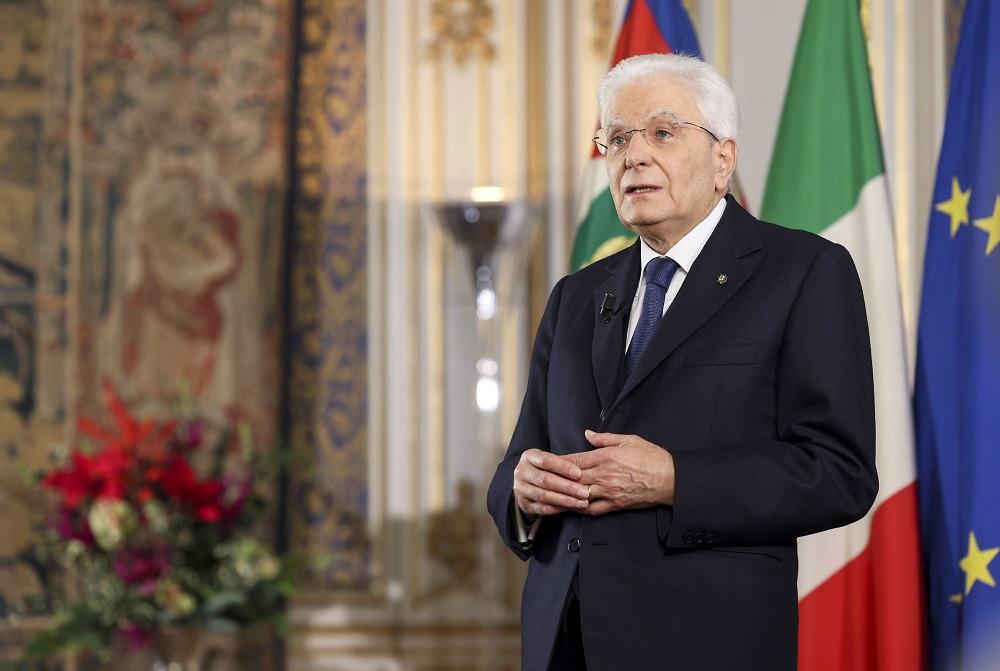There are many interesting – and often peculiar – terms used by politicians and journalists during the period in which Italy’s head of state is elected.
Follow our guide to some of the more common words and phrases to help you to keep up as the election unfolds.
Brogli
The term brogli translates to “electoral fraud” or “rigging” in English and refers to the practice of using illegal methods to obtain a particular result in an election.
In accordance with the Constitution of Italy, the election is held in the form of a secret ballot, with 321 Senators, 630 Deputies, and 58 regional representatives entitled to vote.
This procedure intends to prevent electoral fraud.
Candidato di bandiera
The term candidato di bandiera literally translates to “flag candidate” in English.
It refers to the person who is proposed and supported by a party or coalition as their representative.
These are often high-profile politicians or well-known members of civil society.
Catafalco
The term catafalco refers to the wooden booths with burgundy velvet curtains in which parliamentarians cast their votes.
Four covered voting booths are set up in the lower house of parliament and voters enter one-by-one to cast secret ballots.
This makes it hard for party leaders to impose their will.
The booths made their first appearance in 1992, during the election that saw Luigi Scalfaro become president, to guarantee the secrecy of the vote.
This year, “anti-COVID” booths will be used instead of the traditional catafalchi; the new booths will still ensure votes are cast in secret.
Colle
The term Colle refers to the presidency of the Italian Republic.
In general, the Italian word colle means “hill”; the official residence of the President of the Italian Republic is located on the Quirinal Hill, the highest of the seven hills of Rome in an area colloquially called Monte Cavallo.
Franco tiratore
A franco tiratore is a defector who votes secretly against their own party.
The defector may act alone or with others.
Their choice may be a personal one, but is often a political one shared with other colleagues to reject an official candidacy, sending an implicit message to the leadership of their party.
Grandi elettori
The term grandi elettori literally translates to “grand electors” and refers to all the individuals who vote in the presidential election.
The phrase is often used by the media during coverage of the election.
In addition to the members of parliament, among the great electors there are six senators for life and 58 representatives of the Italian regions.
Insalatiera
The word insalatiera literally translates to “salad bowl” in English.
In the context of the presidential election, the term refers to the urn in which the ballots are placed.
The nickname is inspired by the urn’s resemblance to a fruit or vegetable bowl, as it is made of wicker and green satin ribbons.
Quirinabile
The term quirinabile refers to a person who aspires to be elected or who is identified by political leaders as a possible candidate.
Quorum
The word quorum refers to the minimum number of votes needed for a candidate to be elected.
To get elected, someone must win two-thirds of the vote in any of the first three ballots.
Thereafter, a simple majority is required.
Only three presidents have been elected in the very first round, the last one being Carlo Azeglio Ciampi in 1995.
Nobody has ever been elected at a second or third ballot.
Things tend to get serious at the fourth ballot.
Four presidents have been elected at this stage, including the latest incumbent Sergio Mattarella.
The longest election was that of Giovanni Leone in 1971, who became head of state at the 23rd ballot in a vote that was spread out over 16 days.
Settennato
The word settennato literally translates to “septennate” in English.
It is the name for the seven-year presidential term.
Only one man, Giorgio Napolitano, has been re-elected as president.
That happened in 2013 to overcome a stalemate, and he stood down two years later when the political climate improved.











